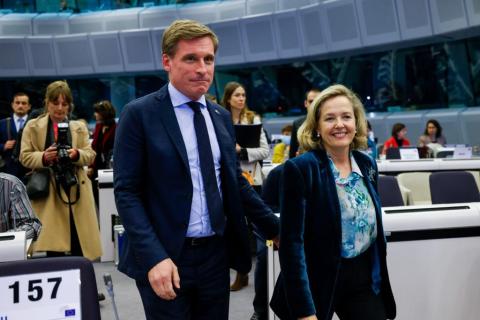European Economic
and Social Committee
Spain's deputy prime minister, Nadia Calviño, says Europe must continue to lead
Economy and finance, digitalisation, competitiveness and business, and trade. These are the four areas where the Spanish Presidency of the Council of the European Union made progress from July to December 2023.
Speaking at the December plenary session, Spain's first deputy prime minister and minister for economy and digitalisation, Nadia Calviño, summarised the conclusions of the rotating EU Presidency, mentioning, among other things, the deepening of economic and monetary union, instant payments in banking, the reform of the electricity market and the signing of an advanced trade agreement with Chile.
Ms Calviño, who is expected to take up office as the next president of the European Investment Bank (EIB) on 1 January 2024, also highlighted the items the European Union will need to put on the agenda soon, especially in view of the upcoming European elections. "The world is undergoing a massive change and the tectonic plates created after the Second World War are shifting," she said. "We need to ensure that the EU continues to lead the most important debates in the world, tackles the main challenges and protects its European values in this new world."
Referring to the busy semester that was about to end, she added that "cooperation with other European institutions and, in particular the EESC, was instrumental in its success. My presence shows the strong commitment of the Spanish government to the social partners, social dialogue and civil society. We try to listen carefully and integrate the opinion of civil society into our work." (mp)
